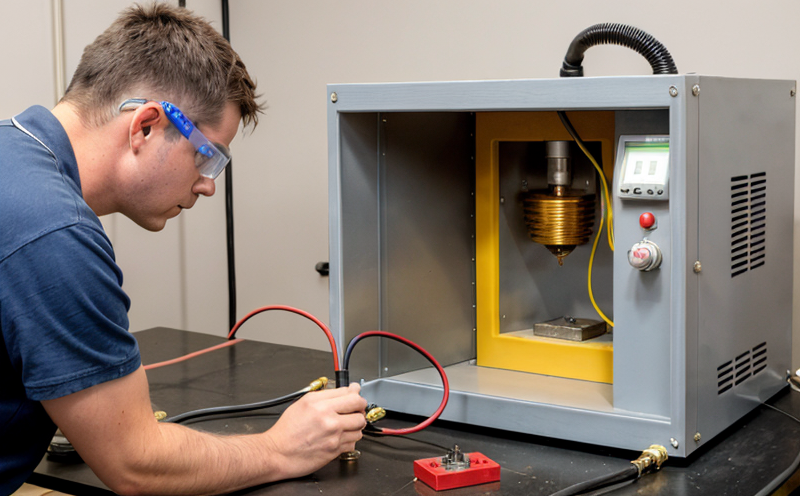ASTM B193 Resistivity of Electrical Conductor Materials
The ASTM B193 standard is a crucial tool in the metallurgy and material testing sector, specifically focusing on the resistivity measurement of electrical conductor materials. This test is essential for ensuring that metals used in electrical applications meet the required specifications for performance and safety.
Resistivity testing provides insights into how efficiently electricity can flow through different metallic conductors under various conditions. Understanding this property helps engineers select appropriate materials for wiring, connectors, and other components where low resistance is critical for efficient power transfer. The ASTM B193 test method measures resistivity by subjecting a standard-length specimen to a known voltage and measuring the current flowing through it.
The process involves precise sample preparation, which includes cutting the conductor into specimens of specific dimensions according to the ASTM B193 specifications. These dimensions are crucial for obtaining accurate results that reflect the true resistivity properties of the material in question. The testing apparatus used typically consists of a constant-voltage source and a precision ammeter capable of measuring very low currents, often in microamperes.
The ASTM B193 standard specifies stringent conditions under which the test should be conducted to ensure comparability between different laboratories and repeatability within a single laboratory. These conditions include temperature control, humidity levels, and the use of standardized reference materials. The results are reported in terms of resistivity (ρ) with units such as ohm-meters (Ω·m).
Accurate measurement of electrical resistivity is vital for quality assurance in numerous industries, including aerospace, automotive, electronics manufacturing, and power generation. By adhering to ASTM B193 standards, manufacturers can ensure that their products meet rigorous performance criteria set by regulatory bodies.
Applied Standards
| Standard | Description |
|---|---|
| ASTM B193 | Determination of Resistivity and Conductivity of Electrical Conductor Materials by the Four-Point Method. |
| ISO 6728-1:2004 | Determination of electrical resistivity of metallic materials - Part 1: Standard test methods using four-point probes. |
Industry Applications
The ASTM B193 test is widely used in various industries where the electrical properties of conductors play a critical role. For instance, aerospace companies rely on this standard to ensure that their wiring systems are reliable and safe for use in space environments. In automotive manufacturing, adherence to these standards helps guarantee that vehicles' electrical systems operate efficiently under diverse conditions.
The electronics industry benefits significantly from ASTM B193 as well, given the importance of minimizing power losses and maximizing signal integrity. Power generation facilities also depend on accurate resistivity measurements to maintain optimal performance of their transformers and other equipment.
| Industry | Application |
|---|---|
| Aerospace | Reliability and safety of wiring systems in space environments. |
| Automotive | Efficient electrical system performance within vehicles. |
| Electronics Manufacturing | Minimizing power losses and maximizing signal integrity in circuits. |
| Power Generation Facilities | Maintaining optimal performance of transformers and other equipment. |
Customer Impact and Satisfaction
The ASTM B193 standard significantly enhances customer satisfaction by ensuring that products meet the highest quality standards. By using this method, manufacturers can produce reliable electrical conductor materials that perform consistently across different environments and applications.
This consistency translates into safer, more efficient products for end-users, leading to increased trust in both the manufacturer's brand and the overall product quality. Compliance with ASTM B193 also aids in regulatory compliance, reducing the risk of non-conformance penalties and enhancing a company’s reputation within its industry.
Customers appreciate the precision and repeatability offered by this testing method, which helps them make informed decisions about material selection for their projects. The accurate resistivity data provided by ASTM B193 enables suppliers to offer tailored solutions that meet specific project requirements, thereby fostering long-term relationships based on reliability and quality.





